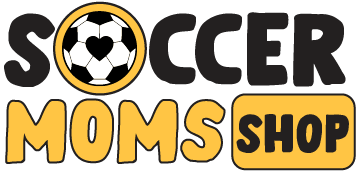- Physically, with young growing bodies, playing the same sport with the same movements, the same muscles being used and the same stresses to tissues, is very challenging. Overuse injuries to the upper and lower extremities are a real problem. We’ve already noted that these injuries are a youth epidemic. Many feel that specialising just multiplies these problems.
- It is important to include off sport conditioning that helps to develop the overall athlete and strengthen against these repetitive motion injuries. Concentrate on what Bob Gajda, famous sports therapist called ” strengthening the opposites and stabilisers”. The muscles and tendons that worked against those repetitive motions. Athletic trainers, physical therapists and personal trainers can help devise these programs. This kind of training is also helpful for multiple sport athletes.
- Make sure that strengthening feet and ankles and working balance is included no matter what the sport! It is so important.
Tennis, figure skating, gymnastics, swimming, soccer and ballet are all examples of early specialisation sports. It’s common for me to see young figure skaters under the age of 10 already skating every day. They are just not interested in other sports.
Most sports medicine doctors, physical therapists, and athletic trainers agree that playing multiple sports is a safer route to take where injuries are concerned. Almost all also agree that specialisation is a greater risk especially for overuse and repetitive motion injuries. The challenge is it’s a very tough sell for these early specialisation sports.
Too many coaches and traveling teams and club sports really push this idea that not specialising will cause these young athletes to “fall behind” in the contest to produce the best for their sport. There is no evidence that this is true. There are many examples of great athletes in all sports who grew up playing other sports and then during their teens and later paid total attention to the one sport.
We’ve talked a lot about the overuse and repetitive motion injuries prevalent in youth sports and the even greater risks with early specialisation sports.
One of my favourite points is the importance of “Intelligent Rest”. The necessity of proper recovery- regardless of the sport or intensity. Young growing bodies need to properly recover from these physical demands, particularly with the early specialisation sports. Sports medicine and science has come a long way with new methods and tools helping with recovery but none of them can replace ‘Intelligent Rest.’ Some of the most successful young athletes I’ve seen over the years in the these sports would take off 3-4 weeks a couple times a year. Take off? That means a real break from the sport- no training or practice. Doing other things- being a child. Physical activities are fine- bike- swim- etc, but no specific sport related activity.
Sports parents must insist on these breaks- often the kids or coaches won’t!
Another danger is “the mental game” and the real concerns of mental burnout. Sports parents need to be aware that when these children don’t get breaks from their sports, they can really turn off. The late sports psychologist, Dr. Jim Vicory, who shared my radio show for a few years in the 1990s paid special attention to this. He would stress that “kids no matter how serious or talented needed to have fun. They were not small adults but young developing children who need to learn through experience and not be robots being consistently drilled”. The pressures, some from sports parents, coaches, and the kids themselves are very real and relentless- the competition alone can be really challenging!
The pressures, schedules, and physical demands on some of these children are extreme. If your young athlete needs pain medicine to participate or stay in the game, YOU’RE OVER THE LINE!
Source: https://www.parentsinsport.co.uk

